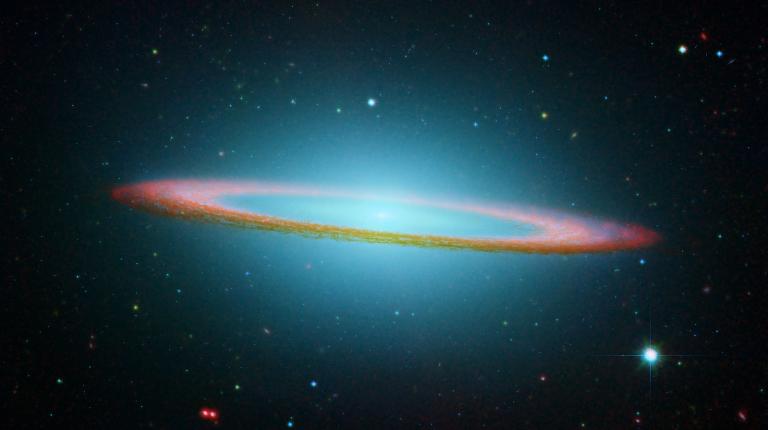
(Photo taken by the Hubble Space Telescope)
The name of the galaxy comes from the curious and, to scientists, very surprising fact that apparently all of its residents speak Spanish. (The pope gave Portugal absolutely nothing in this case.)
I’m not, to put it mildly, an uncritical fan of the late Carl Sagan. But I’m afraid that this comment is, in many cases, far too close to the truth:
“In some respects, science has far surpassed religion in delivering awe. How is it that hardly any major religion has looked at science and concluded, “This is better than we thought! The Universe is much bigger than our prophets said, grander, more subtle, more elegant. God must be even greater than we dreamed”? Instead they say, ‘No, no, no! My god is a little god, and I want him to stay that way.'”
The heavens declare the glory of God; and the firmament sheweth his handywork. (Psalm 19:1)
4 . . . I will show thee the workmanship of mine hands; but not all, for my works are without end, and also my words, for they never cease.
5 Wherefore, no man can behold all my works, except he behold all my glory; and no man can behold all my glory, and afterwards remain in the flesh on the earth. . . .
27 And it came to pass, as the voice was still speaking, Moses cast his eyes and beheld the earth, yea, even all of it; and there was not a particle of it which he did not behold, discerning it by the Spirit of God.
28 And he beheld also the inhabitants thereof, and there was not a soul which he beheld not; and he discerned them by the Spirit of God; and their numbers were great, even numberless as the sand upon the sea shore.
29 And he beheld many lands; and each land was called earth, and there were inhabitants on the face thereof.
30 And it came to pass that Moses called upon God, saying: Tell me, I pray thee, why these things are so, and by what thou madest them?
31 And behold, the glory of the Lord was upon Moses, so that Moses stood in the presence of God, and talked with him face to face. And the Lord God said unto Moses: For mine own purpose have I made these things. Here is wisdom and it remaineth in me.
32 And by the word of my power, have I created them, which is mine Only Begotten Son, who is full of grace and truth.
33 And worlds without number have I created; and I also created them for mine own purpose; and by the Son I created them, which is mine Only Begotten.
34 And the first man of all men have I called Adam, which is many.
35 But only an account of this earth, and the inhabitants thereof, give I unto you. For behold, there are many worlds that have passed away by the word of my power. And there are many that now stand, and innumerable are they unto man; but all things are numbered unto me, for they are mine and I know them.
36 And it came to pass that Moses spake unto the Lord, saying: Be merciful unto thy servant, O God, and tell me concerning this earth, and the inhabitants thereof, and also the heavens, and then thy servant will be content.
37 And the Lord God spake unto Moses, saying: The heavens, they are many, and they cannot be numbered unto man; but they are numbered unto me, for they are mine.
38 And as one earth shall pass away, and the heavens thereof even so shall another come; and there is no end to my works, neither to my words. (Moses 1:4-5, 27-38)












